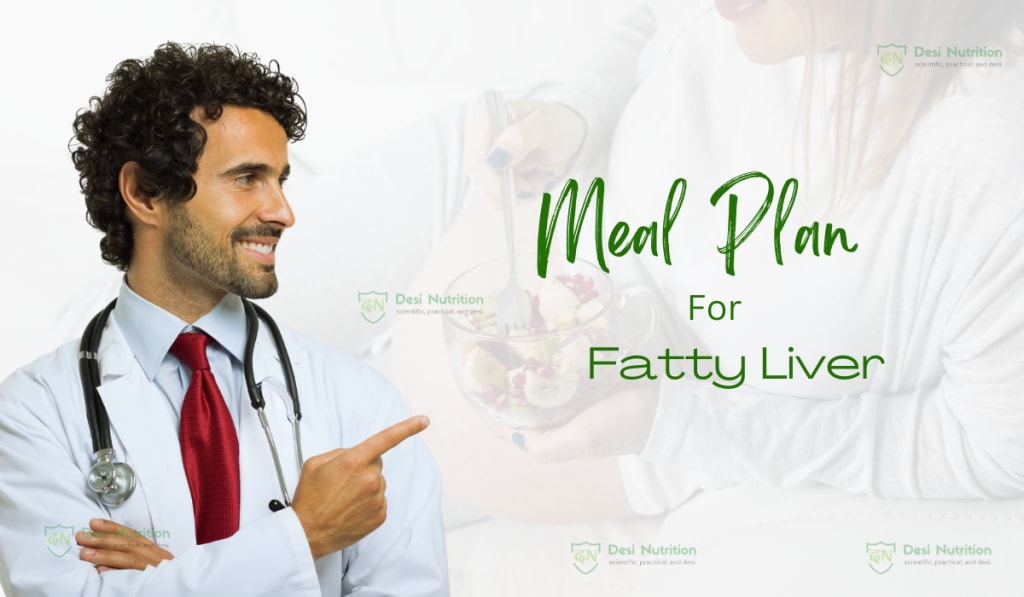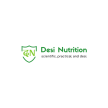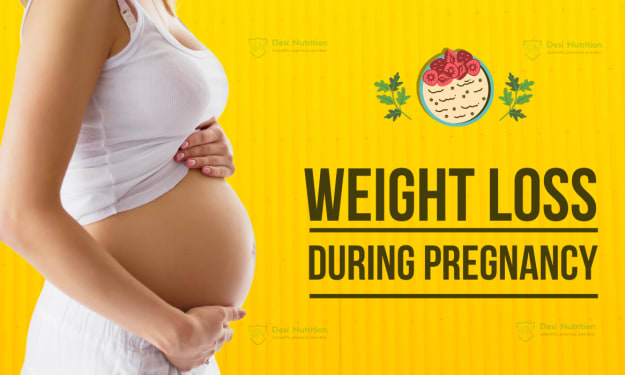Content warning
This story may contain sensitive material or discuss topics that some readers may find distressing. Reader discretion is advised. The views and opinions expressed in this story are those of the author and do not necessarily reflect the official policy or position of Vocal.
Meal Plan For Fatty Liver
Steatotic liver disease or Fatty liver disease (earlier name) simply means you have extra fat on your liver. The condition of fatty liver demands that you need to take dietary precautions. You can follow a meal plan for fatty liver that would exclude the foods that you should not eat in this condition.

Fatty liver could be a result of multiple factors a few of them are:
Obesity
Overconsumption of alcohol
Poor eating habits
Metabolic syndrome
Type 2 diabetes
PCOS
Having fatty liver is a condition that can be managed easily but you need to make a few changes in your lifestyle. Here are a few changes that can help you manage a fatty liver:
Maintain a healthy weight:
You need to maintain a healthy weight if you have fatty liver. If you are overweight or obese you need to work on losing some pounds off your body.
Exercise regularly:
By regularly exercising you will burn calories which will help you to lose weight easily. Indulge in a 30 minute moderate-intensity exercise that can help you burn more calories which is a requirement for weight loss.
Avoid alcohol:
You have to exclude alcohol from your lifestyle if you want to manage your fatty liver.
Quit smoking:
Smoking can lead to risks associated with liver-related issues. If you smoke, consider quitting it so you can improve your liver health.
Drink plenty of water:
Keeping your hydrated is essential to manage your liver health because it supports your overall liver function.
Eat a balanced diet:
You need to eat a balanced diet packed with all the nutrients essential for your body. A balanced diet will contain the right food that will help you to manage the condition of fatty liver.
Here is a sample of meal plan for fatty liver:
DAY 1:
Have 1 bowl of oats with almonds for your breakfast. 1 bowl of oats contains a total of 200 calories. You will get 5 g of protein, 35 g carbs and 7 g fats. Drink green tea with it which has 0 calories.
Eat one apple as your mid morning snack. It contains 95 calories with 25 g of carbs.
Prepare 1 bowl of quinoa khichdi that contains 250 calories. It will also contain 8 g protein, 40 g carbs and 6 g fat. Eat khichdi with 1 cup of mixed vegetables that has 100 calories, 2 g protein, 15 g carbs and 3 g fat.
Eat 1 bowl of carrot sticks in the evening. This one bowl will have 50 calories, 1 g protein, 12 g carbs and 0 fat.
Prepare palak dal and have it with 1 cup of brown rice. 1 cup of palak dal contains 180 calories, 10 g protein, 25 g carbs and 5 g fat. 1 cup of brown rice will have 215 calories, 5 g protein, 45 g carbs and 5 g fat.
Have a glass of buttermilk that contains 50 calories, 2 g protein, 8 g carbs and 1 g fat.
For day one you will consume a total of 1140 calories, 33 g protein, 205 g carbs and 24 g fat.
DAY 2:
Prepare moong dal chilla and have 2 of them with green chutney in the morning. 2 moong dal chilla contains 220 calories, 12 g protein, 30 g carbs and 6 g fats. 2 tbsp of green chutney will have 20 calories, 0 protein, 4 g carbs and 1 g fat.
Have one orange as your mid morning snack. You will consume 60 calories, 1 g protein, 15 g carbs and 0 fat by eating an orange.
Prepare rajma for your lunch and have it with quinoa. 1 cup of rajma contains 210 calories, 8 g protein, 40 g carbs and 3 g fat.
Eat cucumber sticks in the evening. 1 bowl of cucumber sticks have 20 calories, 1 g protein, 4 g crabs and 0 fat.
For dinner, prepare tofu stir fry and have it with whole wheat roti. 1 cup of tofu stir fry contains 200 calories, 12 g protein, 15 g carbs, 8 g fat. 2 whole wheat rotis 200 calories, 6 g protein, 40 g carbs and 2 g fat.
Drink buttermilk before going to sleep.
You will consume a total of 1200 calories, 50 g protein, 191 g carbs and 26 g fat.
DAY 3:
Prepare besan chilla for your breakfast and have it with 2 tbsp of mint chutney. 2 besan chillas contain 220 calories, 8 g protein, 30 g carbs and 6 g fat. 2 tbsp of mint chutney contains 20 calories, 0 g protein, 4 g carbs, 1 g fat.
Eat one bowl of papaya as your mid morning snack which will contain 60 calories, 1 g protein, 15 carbs and 0 fat.
Eat methi thepla for lunch with low fat yogurt. 2 methi thepla consists of 200 calories, 6 g protein, 28 g carbs and 6 g fat. 1 cup of low-fat yogurt has 100 calories, 10 g protein, 15 g carbs and 0 fat.
For evening, have 1 cup of roasted chana which has 180 calories, 10 g protein, 15 g carbs and 0 fat.
Prepare bhindi (okra) masala for dinner along with brown rice. 1 cup of bhindi masala contains 215 g of calories, 5 g protein, 45 g carbs and 2 g fat.
Drink 1 glass of buttermilk.
For day 3 you will consume 1195 calories, 46 g protein, 195 g carbs and 26 g fat.
DAY 4:
Eat 1 bowl of oats upma for your breakfast. It will contain 220 calories, 6 g protein, 40 g carbs and 6 g fat.
Have a banana as a mid morning snack. It contains 90 calories, 1 g protein, 23 g carbs and 6 g fat.
Prepare chana dal for your lunch and have it with 1 cup of brown rice. A cup of cooked chana dal contains 220 calories, 12 g protein, 30 g carbs and 5 g fat.
Have 1 bowl of carrot sticks as your evening snack.
Prepare mixed vegetables and eat them with 2 rotis. 1 cup of mixed vegetables contains 150 calories, 4 g protein, 20 g carbs and 6 g fat. 2 rotis will contain 200 calories, 6 g protein, 40 g carbs and 4 g fat.
Drink 1 glass of buttermilk after dinner.
You will consume 1195 total calories, 37 g protein, 218 g carbs and 24 g fat.
DAY 5:
Have 1 plate poha for your breakfast. It contains 250 calories, 4 g protein, 45 g carbs and 6 g fat.
Have an apple as a mid morning snack. 1 apple contains 95 calories and 45 g carbs.
For lunch, prepare dal tadka and have it with quinoa. 1 cup of dal tadka contains 220 calories, 12 g protein, 30 g carbs and 6 g fat. 1 cup of quinoa has 220 calories, 12 g protein, 30 g carbs and 6 g fat.
Have an orange as your evening snack.
Prepare palak paneer and have it with 1 cup of brown rice. 1 cup of cooked palak paneer consists of 220 calories, 12 g protein, 12 g carbs and 14 g fat.
Drink 1 glass of buttermilk after dinner.
You will consume a total of 1330 calories, 44 g protein, 220 carbs and 32 g fat.
DAY 6:
For breakfast, make 2 moong dal chilla and enjoy them with 2 tbsp of mint chutney.
Eat a pear as your mid morning snack that contains 100 calories, 1 g protein and 27 g carbs.
Prepare vegetable pulao and have it with 1 cup of raita for your lunch. 1 bowl of vegetable bowl consists of 300 calories, 8 g protein, 55 g carbs and 6 g fat. 1 cup of raita consists of 100 calories, 5 g protein, 8 g carbs and 3 g fat.
Have 1 cup of roasted chana in the evening. It contains 180 calories, 10 g protein, 30 g carbs and 3 g fat.
For dinner, prepare stir-fry tofu and have it with two whole wheat roti. 1 cup of it contains 200 calories, 10 g protein, 30 g carbs and 3 g fat.
Drink buttermilk after dinner.
You will consume 1370 calories, 56 g protein, 190 g carbs and 30 g fat.
Remember, this is just a sample meal plan for fatty liver, for specific meal plans, consult a nutritionist. A nutritionist will help you make a well-planned diet plan that will help you to manage your fatty liver.
About the Creator
Diet Nutrition
Desi Nutrition bridges the gap between hearty traditional Indian meals and modern nutritional wisdom. We simplify your health journey by delivering personalized, science-backed meal plans right to your door.
Enjoyed the story? Support the Creator.
Subscribe for free to receive all their stories in your feed. You could also pledge your support or give them a one-off tip, letting them know you appreciate their work.






Comments
There are no comments for this story
Be the first to respond and start the conversation.